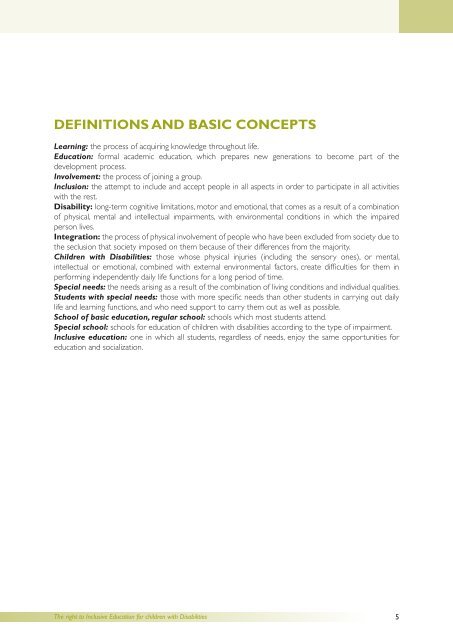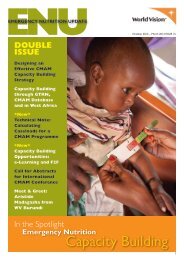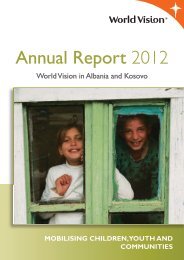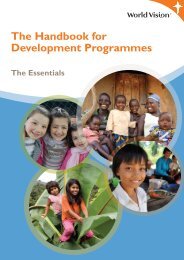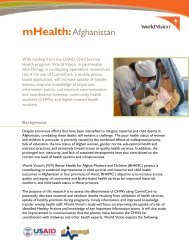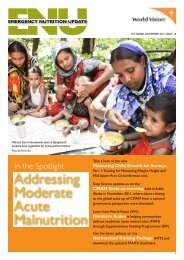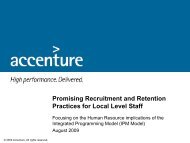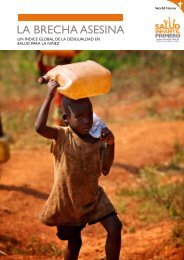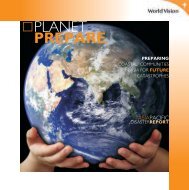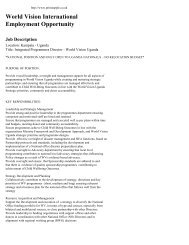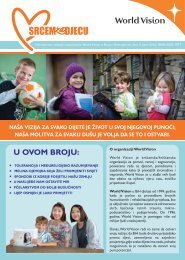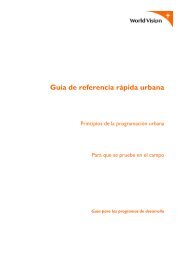the right to inclusive education for children with disabilities
the right to inclusive education for children with disabilities
the right to inclusive education for children with disabilities
Create successful ePaper yourself
Turn your PDF publications into a flip-book with our unique Google optimized e-Paper software.
definiTions and basic concePTsLearning: <strong>the</strong> process of acquiring knowledge throughout life.Education: <strong>for</strong>mal academic <strong>education</strong>, which prepares new generations <strong>to</strong> become part of <strong>the</strong>development process.Involvement: <strong>the</strong> process of joining a group.Inclusion: <strong>the</strong> attempt <strong>to</strong> include and accept people in all aspects in order <strong>to</strong> participate in all activities<strong>with</strong> <strong>the</strong> rest.disability: long-term cognitive limitations, mo<strong>to</strong>r and emotional, that comes as a result of a combinationof physical, mental and intellectual impairments, <strong>with</strong> environmental conditions in which <strong>the</strong> impairedperson lives.integration: <strong>the</strong> process of physical involvement of people who have been excluded from society due <strong>to</strong><strong>the</strong> seclusion that society imposed on <strong>the</strong>m because of <strong>the</strong>ir differences from <strong>the</strong> majority.Children <strong>with</strong> Disabilities: those whose physical injuries (including <strong>the</strong> sensory ones), or mental,intellectual or emotional, combined <strong>with</strong> external environmental fac<strong>to</strong>rs, create difficulties <strong>for</strong> <strong>the</strong>m inper<strong>for</strong>ming independently daily life functions <strong>for</strong> a long period of time.Special needs: <strong>the</strong> needs arising as a result of <strong>the</strong> combination of living conditions and individual qualities.Students <strong>with</strong> special needs: those <strong>with</strong> more specific needs than o<strong>the</strong>r students in carrying out dailylife and learning functions, and who need support <strong>to</strong> carry <strong>the</strong>m out as well as possible.School of basic <strong>education</strong>, regular school: schools which most students attend.Special school: schools <strong>for</strong> <strong>education</strong> of <strong>children</strong> <strong>with</strong> <strong>disabilities</strong> according <strong>to</strong> <strong>the</strong> type of impairment.Inclusive <strong>education</strong>: one in which all students, regardless of needs, enjoy <strong>the</strong> same opportunities <strong>for</strong><strong>education</strong> and socialization.The <strong>right</strong> <strong>to</strong> Inclusive Education <strong>for</strong> <strong>children</strong> <strong>with</strong> Disabilities5


